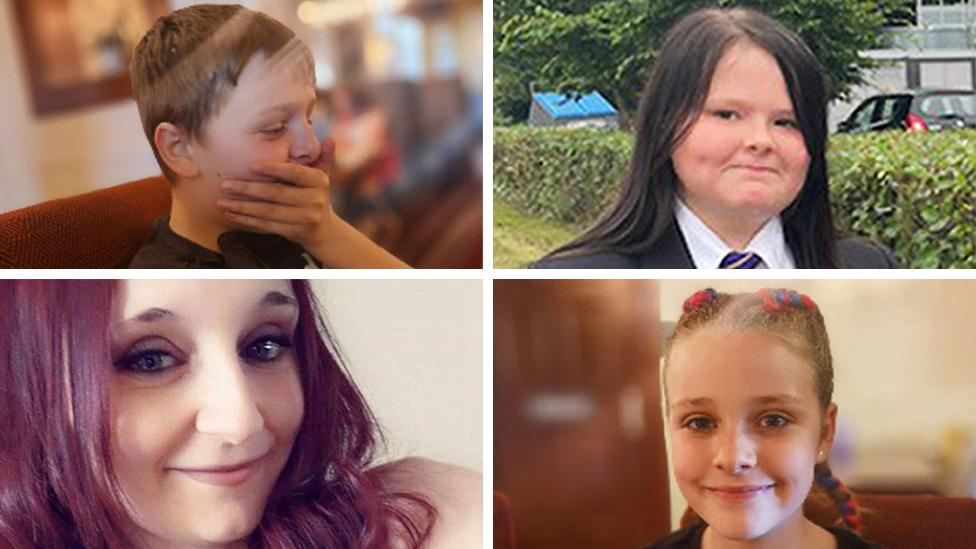Damien Bendall: Quadruple murderer put in wrong risk classification
- Published
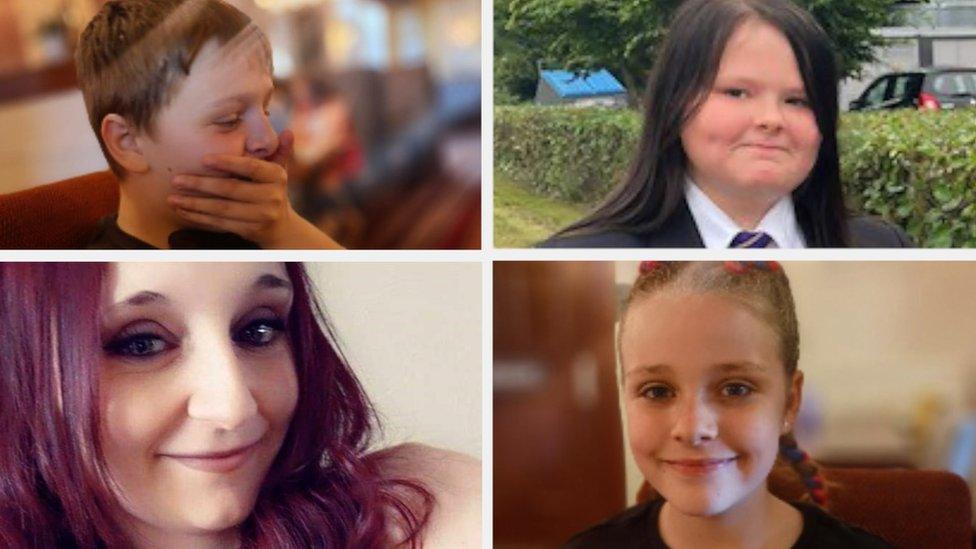
Terri Harris (bottom left) and her children John Paul Bennett (top left) and Lacey Bennett (bottom right) were found dead along with Lacey's friend Connie Gent (top right)
The chief probation officer said the service was facing "significant" issues while dealing with Damien Bendall, who went on to kill four people.
But Kim Thornden-Edwards told an inquest that major changes continued to be made to prevent a similar "tragic" incident happening again.
She said she accepted the findings of a damning independent report on the Probation Service.
The inquests, at Chesterfield Coroner's Court, continue.
Bendall used a claw hammer to kill 35-year-old Terri Harris and her children, 13-year-old John Paul Bennett and 11-year-old Lacey Bennett, who he also raped, at the family home in September 2021.
Lacey's friend Connie Gent, 11, who was staying over, was killed too.
The report said the Probation Service's handling of Bendall, after his release from prison for a previous crime, was of an "unacceptable standard" at every stage and "critical opportunities" to correct errors were missed before he murdered his victims in Killamarsh, Derbyshire.
Ms Thornden-Edwards, the chief probation officer for England and Wales, said she accepted the findings "without reservation".
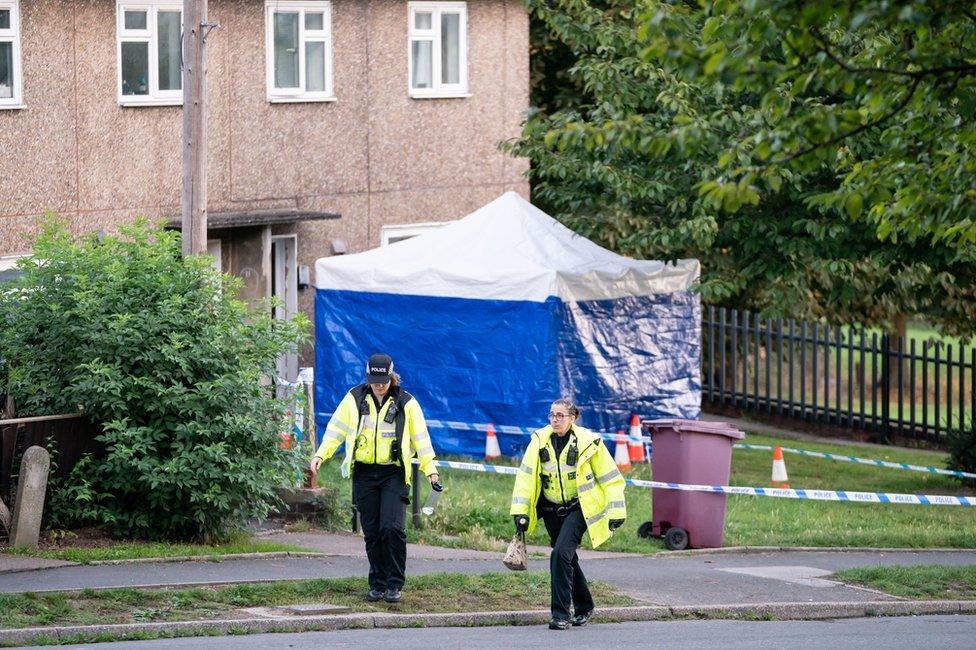
Police found Terri Harris and the three children dead at the house in Chandos Crescent in Killamarsh
The inquests previously heard from members of staff at the Probation Service based in both Swindon and Chesterfield, who both dealt with Bendall in relation to previous offences and said they struggled with high workloads and stress.
Another inexperienced probation officer told the inquests she had only been in her post for about five months before she was incorrectly allocated Bendall's case.
Speaking on day eight of the inquests on Wednesday, Ms Thornden-Edwards said the "fundamental error" in the Probation Service's dealing with Bendall "was the wrong classification of risk [he posed] which was built on a lack of information available that should have been sought".
She said: "It was not appropriate, when you look at Bendall's history, to have allocated him to an inexperienced member of staff without the right support.
"There were opportunities during the course of what happened to reassess his risk and unfortunately that didn't happen.
"There was significant disruption at the time, there were significant staffing gaps and many teams were struggling to manage the level of vacancies they had and oversee the level of work acceptably.
"I accept that the workloads were high and there was disruption within the team. I'm not here to dispute the fact that caseloads were too high and vacancies were too high."
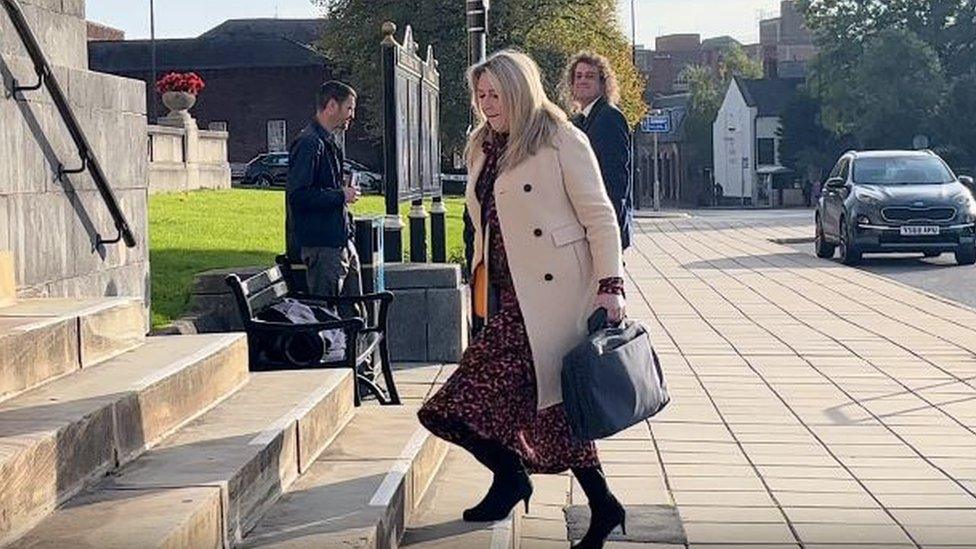
The chief probation officer for England and Wales, Kim Thornden-Edwards, gave evidence at the inquests on Wednesday
Ms Thornden-Edwards said they had recruited at "record levels" to try and address staffing issues.
She explained how, in June 2021, a new model for probation services was brought in, largely reversing controversial changes that had been made in 2014 which divided the probation service in two, but that this was a "considerable organisational challenge".
"The changes were huge, we were bringing together two separate organisations. Staff were anxious about the changes, it became a very anxious time for probation and there was considerable strain on the system," Ms Thornden-Edwards said.
"We restarted with a significant number of staff vacancies that were very difficult to fill quickly. The other element that compounded this is that it occurred during the pandemic. It was a very difficult time, a unique time in probation history.
"I wouldn't want to say there wasn't enormous amounts of preparation but even with all the planning, it was a huge change at a difficult time for the country."
Ms Thornden-Edwards said they were "starting to see the benefits" after recruiting new staff members.
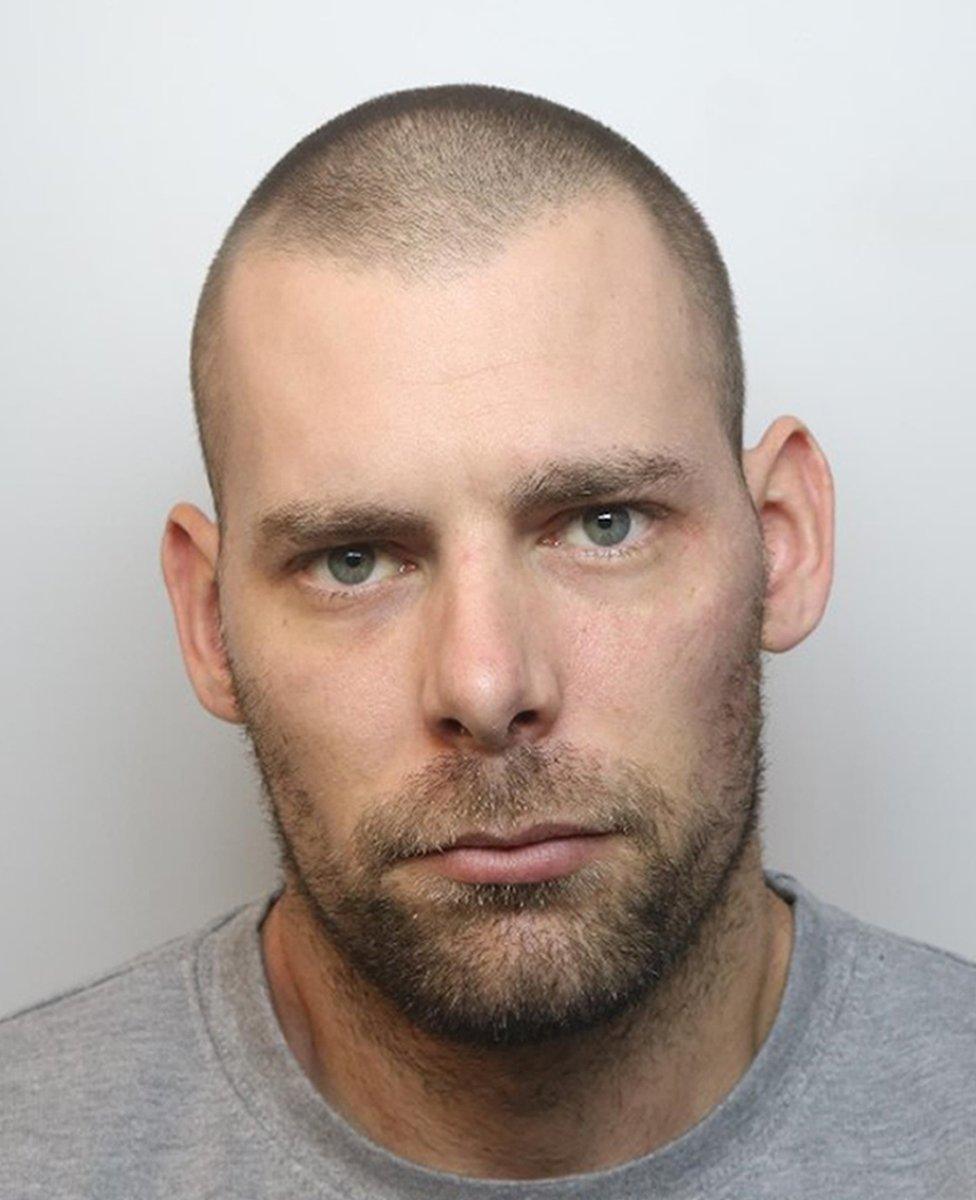
Damien Bendall admitted four murders and the rape of 11-year-old Lacey Bennett
The independent report also highlighted how "vital information about the serious risks" posed by Bendall to those he lived with and the public was not included in the Probation Service's report to a judge when he was sentenced for an arson offence in June 2021.
As a result, he was sentenced to an "entirely inappropriate curfew condition to reside with Ms Harris and her children".
Addressing this, Ms Thornden-Edwards said it was likely a judge would have listened if the Probation Service had said that a curfew would not be suitable.
"If we were able to say we had concerns about a high-risk offender with some domestic abuse history being curfewed to a family home, I believe the courts would have been minded to listen," she said.
Bendall was given a whole-life sentence for the murders and rape in December 2022.

Follow BBC East Midlands on Facebook, external, on X, external, or on Instagram, external. Send your story ideas to eastmidsnews@bbc.co.uk, external.
Related topics
- Published13 October 2023
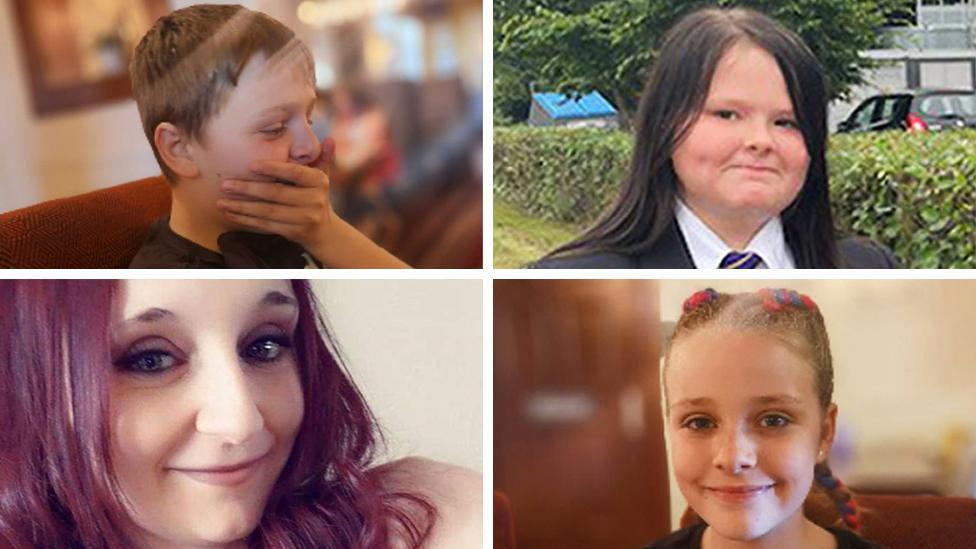
- Published13 October 2023

- Published9 October 2023

- Published21 December 2022
